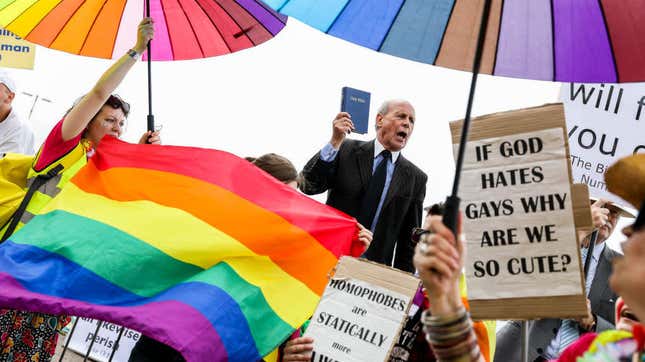Study Finds There Is No 'Gay Gene,' But Genetics Do Play a Part in Sexuality
Latest

A new study has found that genetics are “responsible for perhaps a third of the influence” over whether a person is sexually attracted to members of the same sex.
The study out of the Broad Institute at Harvard and M.I.T. was funded by the National Institutes of Health along with other agencies and studied genetic data from 408,000 men and women in a British database called Biobank along with a further 70,000 samples from 23andme of mostly American people who were 51 years old on average and had answered questions about sexuality. All were of white European descent and none were trans. Of the 23andme samples, 19 percent had reported a homosexual experience, while just 3 percent of the Biobank samples had reported the same. Of their admittedly limited sample, scientists found that genetics do play a role in predicting a person’s sexual interest in the same sex, according to the New York Times:
-

-

-

-

-

-

-

-

-

-

-

-

-

-

-

-

-

-

-

-

-

-

-

-

-

-

-

-

-

-

-

-

-

-

-

-

-

-

-

-








































